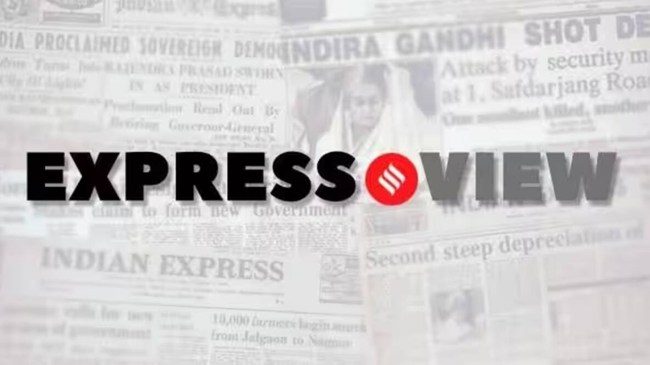Opinion Parliament debate wasn’t about waqf – it showed a government with a trust deficit
At the heart of the deliberations lay this stark question: What is needed for the country's largest minority to trust the Modi government to do the right thing by it?
 At the heart of the deliberations lay this stark question: What is needed for the country's largest minority to trust the Modi government to do the right thing by it?
At the heart of the deliberations lay this stark question: What is needed for the country's largest minority to trust the Modi government to do the right thing by it? Parliament has discussed the Waqf Amendment Bill. In the House of the People, the debate ran well past midnight, 288 MPs voted in favour, 232 against. Those, there, are the bare facts. But rewind to the debates in both Houses, listen in, and an impression is inescapable: The deliberation in Parliament was not, really, about amending the 1995 Act regarding the administration, management and regulation of waqf properties across the country. It was also much wider than the shorthand summary of each side of the debate makes it out to be. Curbing corruption, reforming by improving efficiency, transparency and accountability, on the government’s side. Discriminating between Muslims and other religions, dividing and marginalising Muslims, undermining constitutionally guaranteed rights and freedoms of minorities, according to the mostly united Opposition. Even as elements in the bill promote transparency, specific provisions raise questions — be it the inclusion of non-Muslims in the state Waqf Boards and the Central Waqf Council, or the expansion of government’s role in regulating waqf properties and adjudicating disputes. But these issues became secondary to the larger invocations in the House, from the criminalisation of triple talaq, the Citizenship Amendment Act and the building of the Ayodhya Ram Mandir to the abrogation of Article 370.
At the heart of the deliberations lay this stark question: What is needed for the country’s largest minority to trust the Modi government to do the right thing by it? Unfortunately, for now, any reading of the answer would have to be shaped by unmoving positions and frozen complicities. They show that even as the Modi government, now in its third term, rightly congratulates itself on its agility and ability in pushing boundaries in many sectors, politically and administratively, finding the language or the credibility to talk to and persuade the minorities remains a challenge for it. The government proclaims “sabka vikas… sabka vishwas (development for all, with everyone’s trust)”, but needs to make much more effort to move the needle on the slogan’s second half. In this, it is hampered, most of all, by a glaring absence — the BJP has zero Muslim MPs in the Lok Sabha. While the idea of representation cannot, of course, be reduced to a head count of different identities, the fact that the BJP did not have an elected Muslim MP of its own to speak for it in the waqf debate underlines an exclusion and a withholding that is at odds with the great and enriching diversity of India’s polity.
As far as the Opposition is concerned, the debates over the Waqf Amendment Bill brought a welcome respite from its internal wrangling. For this brief period, on display was an otherwise elusive Opposition unity. Showcased in Parliament, too, was the fact that these parties regained their voice, even if temporarily, on minority issues, which, in recent times, have been met with their equivocation and/or silences. What was most heartening, perhaps, after the two-day debate was this: Parliament became, once again, the site of the big debate. All sides participated, no major player walked out, and even though the outcome was finally determined by cold and hard numbers, the House rang with different and differing voices.






